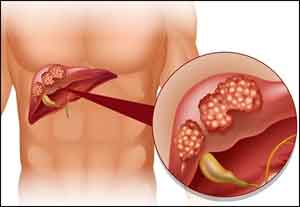- Home
- Editorial
- News
- Practice Guidelines
- Anesthesiology Guidelines
- Cancer Guidelines
- Cardiac Sciences Guidelines
- Critical Care Guidelines
- Dentistry Guidelines
- Dermatology Guidelines
- Diabetes and Endo Guidelines
- Diagnostics Guidelines
- ENT Guidelines
- Featured Practice Guidelines
- Gastroenterology Guidelines
- Geriatrics Guidelines
- Medicine Guidelines
- Nephrology Guidelines
- Neurosciences Guidelines
- Obs and Gynae Guidelines
- Ophthalmology Guidelines
- Orthopaedics Guidelines
- Paediatrics Guidelines
- Psychiatry Guidelines
- Pulmonology Guidelines
- Radiology Guidelines
- Surgery Guidelines
- Urology Guidelines
Coffee reduces risk of liver cirrhosis up to 70 percent : Study

A new roundtable report from the Institute for Scientific Information on Coffee (ISIC) on 'Looking after the liver: coffee, caffeine and lifestyle factors' highlights the potential role of coffee consumption in reducing the risk of liver diseases such as liver cancer and cirrhosis.
Roundtable delegates including academics, media medics and representatives from national liver associations from across seven European countries, met to discuss the most recent research into coffee and liver health and the potential mechanisms behind a suggested reduced risk of liver disease.
The roundtable, held at the Royal Society of Medicine in London, was chaired by Professor Graeme Alexander (University College London and senior advisor to the British Liver Trust) who also presented on the prevalence of liver disease in Europe and the role of lifestyle. Dr. Carlo La Vecchia (Professor of Medical Statistics and Epidemiology, Dept. of Clinical Sciences and Community Health, Università Degli Studi di Milano) discussed the latest research on coffee and liver health and potential mechanisms. Group discussion focused on how best to disseminate the latest findings and challenges for both liver associations and healthcare professionals.
Liver disease is a significant concern across Europe, where the chronic liver disease is the fifth most common cause of death and approximately 29 million people in the European Union suffer from a chronic liver condition.
Key research findings highlighted in the report include:
- Meta-analyses have suggested that coffee consumption versus no coffee consumption is associated with up to a 40% risk reduction of liver cancer, although this appears to be a dose-dependent relationship.
- Research from the US and Italy suggests that coffee consumption is consistently associated with a reduced risk of cirrhosis, with a potential risk reduction of 25-70%.
- Research suggests an inverse association between coffee consumption and risk of chronic liver disease, with an average risk reduction of 25-30% in low coffee consumers, and up to 65% in high coffee consumers.*.
During the roundtable, Professor Alexander suggested that it is likely that liver cancer develops from an existing liver disease, and proposed that the association between coffee consumption and a reduced risk of liver cancer may, in fact, link back to an effect of coffee drinking on liver disease.
One of the main issues discussed at the roundtable was the diagnosis of liver disease and the fact that a majority of sufferers are unaware of their condition. Even though the liver is a vital organ, the perception in some European countries is that liver health is not considered as high a priority as other conditions, such as heart disease.
Professor Graeme Alexander, the senior advisor to the British Liver Trust, commented: "Liver disease is on the rise across Europe and it is important that we understand how coffee, one of the most popular drinks in the world, and diet affect the disease. Research suggests that coffee may reduce the risk of liver diseases and it is important patients have access to dietary information and advice from healthcare professionals in a manner that is easy for them to understand and act upon."
Judi Rhys, Chief Executive, British Liver Trust said: "Liver disease is a silent killer as often there are no symptoms until it's too late. Coffee is something that is easily accessible to everyone and regularly drinking it - filtered, instant or espresso - may make a difference in preventing and, in some cases, slowing down the progression of the liver disease- it is an easy lifestyle choice to make."

Disclaimer: This site is primarily intended for healthcare professionals. Any content/information on this website does not replace the advice of medical and/or health professionals and should not be construed as medical/diagnostic advice/endorsement or prescription. Use of this site is subject to our terms of use, privacy policy, advertisement policy. © 2020 Minerva Medical Treatment Pvt Ltd